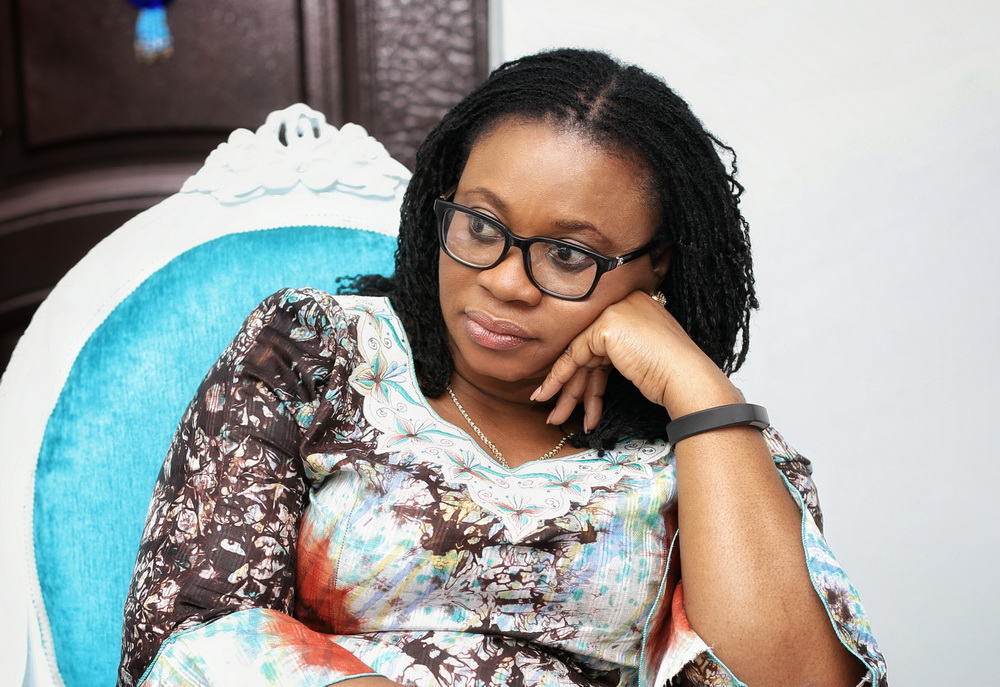The Supreme Court on Wednesday rebuked the Electoral Commission for showing disrespect towards the court.
At the court’s hearing of oral submissions on the Special Voting case, all seven panel members took turns to heavily criticise the EC for under-estimating the gravity of the issues before the court, Graphic Online’s Emmanuel Ebo Hawkson reports.
The reason was that, the court needed some clarifications on the case and none of the commissioners, directors or staff of the EC were present in court to provide that clarification.
The lead counsel of the EC, Mr Thaddeus Sory was also not in court but was represented by his assistant, Mr Sean Poku.
Since the clarification was technical in nature, Mr Poku could not provide the court with the information it needed.
A suit over the special voting exercise in the lead up to the December 7 polls has now taken centre stage at the Supreme Court.
At the court's sitting Wednesday, the legal teams of the EC and the three individuals who filed the suit made their oral submissions, Ebo Hawkson reported.
The court presided over by Mr Justice William Atuguba will give judgement on the matter on Monday November 14, 2016.
Other members of the panel were Justices Jones Dotse, Anin Yeboah, Paul Baffoe-Bonnie, A.A Benin, Yaw Apau and Gabriel Pwamang.
The court said that at least if activities at the EC was that busy, it should have designated one person to represent it in court and therefore since none of them was in court, it showed disrespect towards the apex court.
Read also: Special voting takes centre stage at Supreme Court
Special voting
Special voting is a special dispensation under the electoral laws that allows registered voters who will not be able to present themselves at their polling stations on voting day as a result of the roles they will play in the elections to vote on a date before the rest of the electorate vote on the date set for the elections.
The category of people who are allowed to do special voting are security personnel, officials of the EC, election observers and journalists.
The suit challenging the constitutionality of the rules governing the exercise was initiated by Dr Kwame Amoako Tuffour, a retired lecturer; Benjamin Arthur, an alternative dispute resolution (ADR) practitioner, and Adreba Abrefa Damoa, a pensioner.
They are arguing that Constitutional Instrument (C.I.) 94, which states that special voting ballot boxes will be sealed to be opened on close of voting on Election Day for counting, was unconstitutional.
The plaintiffs are, accordingly, invoking the original jurisdiction of the Supreme Court to declare that upon a true and proper interpretation of Article 49 of the 1992 Constitution, ‘special voting’, as provided for by Regulation 23 of the Public Elections Regulations, 2016, C.I. 94, is a part of public elections.
They are also seeking a declaration that upon a true and proper interpretation of Article 49 of the Constitution of the Republic of Ghana, 1992, and Section 13 of the Representation of the People Law, 1992, PNDCL 284, the ballots to be cast pursuant to Regulation 23 (1), (2), (3)(,(4),(5),(6),(7),(8),(9) and (10) of the Public Elections Regulations, 2016, C.I. 94 by special voters in the December 2016 presidential and parliamentary elections ought to be counted and announced there and then on the date(s) of the special voting by the presiding officers before communicating same to the returning officer.
The plaintiffs are further seeking an order striking down Regulation 23 (11) of the Public Elections Regulations, 2016, C.I. 94, as being inconsistent with Article 49 (2), (3) (a) and (b) of the Constitution and Section 13 of the Representation of the People Law, 1992, PNDCL 284.
Writer's email: enoch.frimpong@graphic.com.gh

